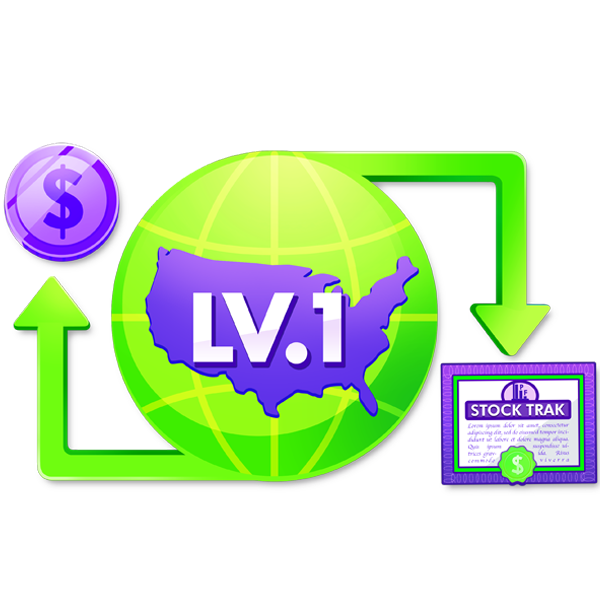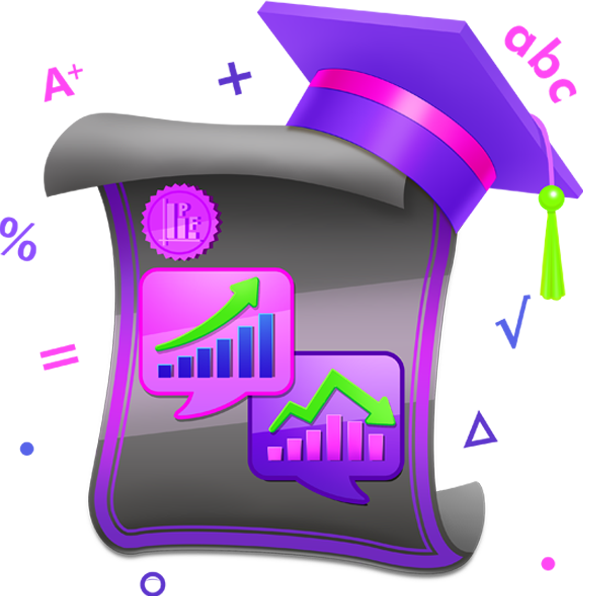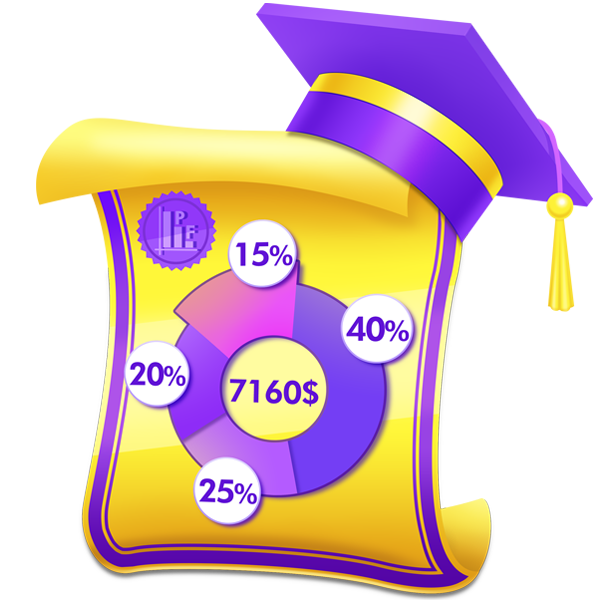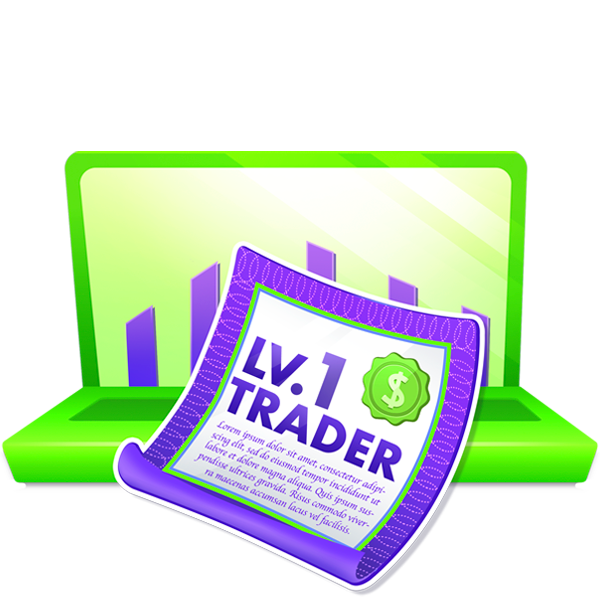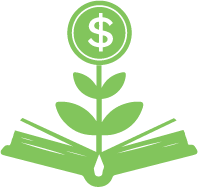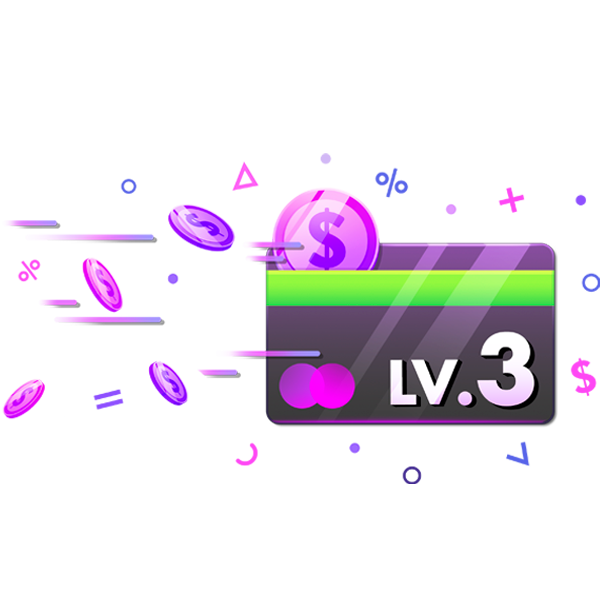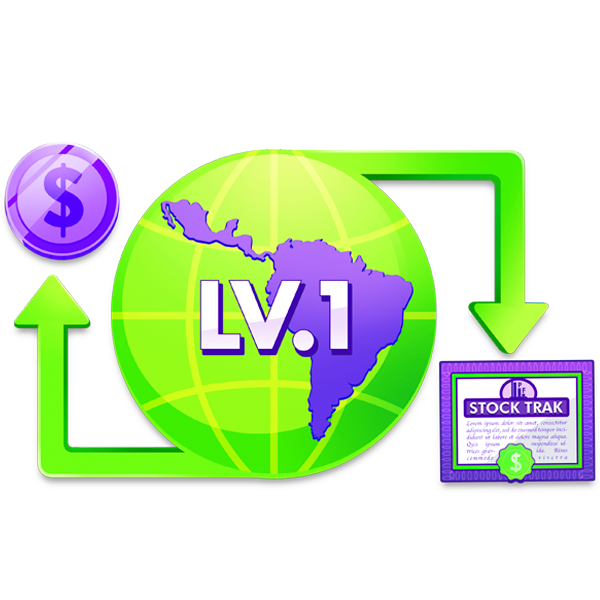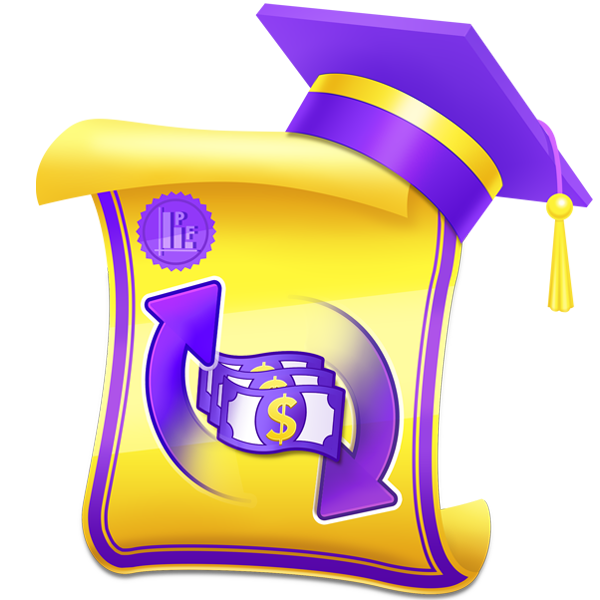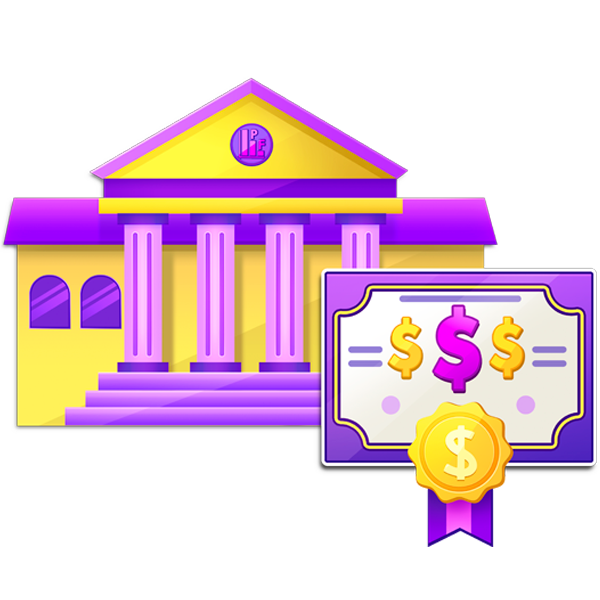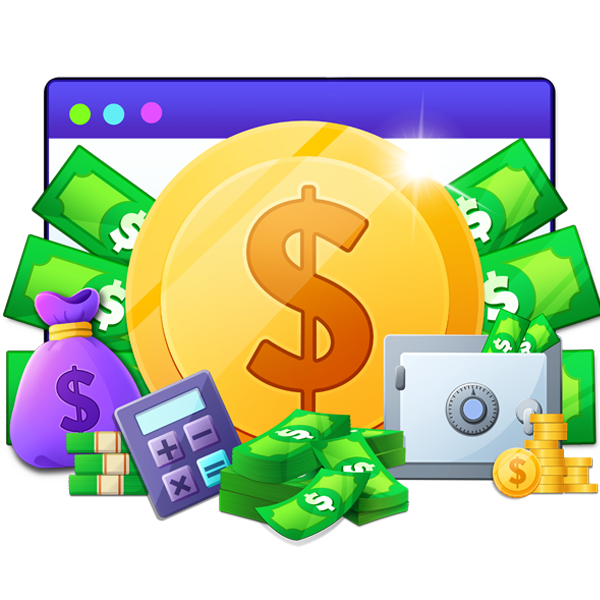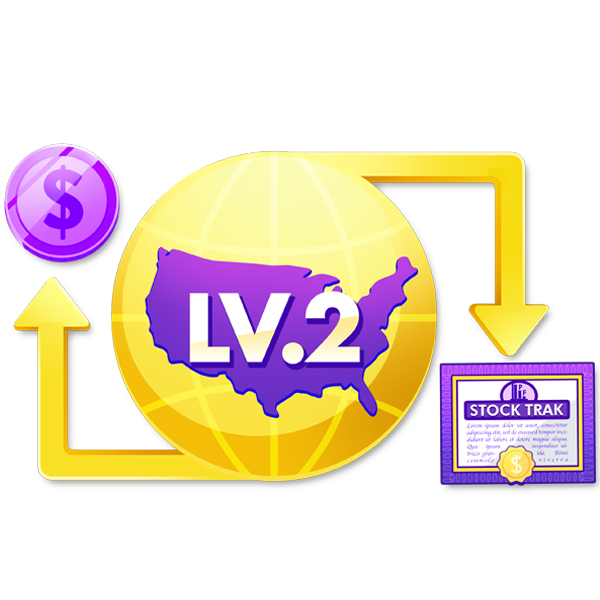Middle Class An economic class of people who are characterized by the ability to accumulate a modest amount of wealth, but not enough to be considered “rich”.
Medium Of Exchange A key concept of “money” – that it is readily accepted by a wide range of people and businesses, and that having a unit of currency can be easily traded for many other goods or services. Click Here for our lesson on What is Money?
Medicare A healthcare program in the United States that provides health insurance for the elderly and disabled. Click Here for our lesson on Health Insurance
Medicaid A healthcare program in the United States aimed at serving people or families with little or no income. Medicaid is administered at the state level but is supported by federal funding. Click Here for our lesson on Health Insurance
Matrixed Management A type of management structure where each team reports to two different managers – one overseeing a type of product, and another a geographic region. The concept behind matrix management is to give a better crossflow of information between higher business objectives, but it can be difficult to implement due to its complexity.
Matching Principle A fundamental concept in double-entry bookkeeping that every transaction is recorded twice – once as a credit in one place, and once as a debit somewhere else. This gives accurate representations of assets, liabilities, and profit, while introducing controls for error detection and correction.
Marketing Plan A specific outline of actions a marketing team will execute to reach the maximum number of potential clients, maximize sales, and do so profitably.
Marketing Mix The different channels used in a marketing plan. The most common elements are product, price, place, and promotions.
Marketing The act of helping connect providers of goods and services with people who would be interested in purchasing them.
Market A place of exchange of goods, services, or financial products.
Market Tops The concept of a general “peak” in the stock market as a whole, before experiencing a period of decline.
Market Timing The act of trying to “buy low” and “sell high” – timing individual trades based on the time of day when prices fluctuate.
Market Summary A snapshot of what is going on in the financial markets at a given time. A market summary will typically include the day’s performance of the S&P 500, Dow Jones Industrial Average, Gold, Oil, and several other major commodities or indices.
Market Strategy A plan a marketing team develops for how they will bring a particular product “to market” – how it will compete with alternatives, pricing, and an outline of marketing plans for various target customers.
Market Socialism A type of hybrid economic model where most of an economy is established by market forces, but some aspects are nationalized (or run directly by the government). Examples of this would be when the government is the direct provider of all health insurance but does not interfere with other parts of the economy.
Market Sentiment The current ‘attitude’ of the financial markets, usually called “bull” (optimistic) or “bear” (pessimistic).
Market Segmentation A marketing concept where a target market is divided into smaller parts, with a different marketing strategy for each part. Common types of market segmentation include geographic (different strategies for different countries or cities) and age (different approaches for different age groups of potential customers).
Market Outcomes The allocation of resources that results from a market economy.
Market Order A type of order placed for a stock or other investment that is sent to the market to execute at “whatever the current price is”, with no other restrictions. Click Here for our tutorial video on Order Types
Market Forces The “Invisible Hand” of the market that pushes companies and people to change products, jobs, and prices to be better in line with what everyone else is doing. In a market economy, the market forces generally push for companies to be more profitable and individuals to seek higher income for their services.
Market Failure A condition where pricing, supply, and demand fail to produce an outcome desired by society. For example, if food prices rise to the point where the needy cannot afford to eat, it would be considered a market failure.
Market Equilibrium A condition where supply and demand for all goods and services are balanced at the current prices.
Market Economy An economic system based on the free (or nearly free) buying and selling of goods and services, with a strong financial background and open access to credit. Major economic decisions evolve out of the actions of the agents in the market, rather than being dictated by a central planning agency.
Market Cap The total value of a company’s stock at the current market price.
Market Analysis A marketing exercise that looks into the group of customers that exists to identify what needs are currently not being met, and what business opportunities might exist. This is an important part of product planning.
Marginal Cost The extra cost incurred from one single additional unit. In production, this would be the cost of a factory to produce one more widget than they are today.
Marginal Benefit The extra benefit gained from one single additional unit. For example, the pleasure you would get from eating one single additional potato chip. Marginal benefit typically decreases as quantity increases.
Mania A time characterized by over-enthusiastic optimism for a type of investment, driving up its price. Manias typically end in crashes, when investors realize the investment has been over-valued and try to sell off at the same time.
Managerial Accounting A type of accounting that is concerned with providing actionable information to a company’s management or leadership. This differs from financial accounting, which is primarily concerned with producing financial statements for investors and other outside parties.
Management The decision makers of a company, who oversee teams of employees.
MACD A technical analysis indicator that tries to give an indication of where a stock’s price will be moving based on the previous trading data. MACD uses statistical analysis to try to estimate where the “momentum” of the stock’s price movement will drive it to next.
Low The lowest price a stock or other investment reached over the course of a period of time, typically day or year.
Losses The value an asset loses after it has been purchased.
Loss Leader A marketing ploy where very common items (such as milk, bread, and eggs at a grocery store) are priced at or below cost in order to attract customers to the store. While the store may lose money on every sale of their “loss leader”, profits are made on the other items the customer Read More…
Long-Term Purchase A type of purchase that a person expects to pay for or use over the course of several years.
Long-Term Liabilities Liabilities of a company that are not due to be repaid within the next year.
Long-Term Care Insurance A type of medical insurance that covers the cost of long-term care, such as nursing home or hospital stays longer than 1 week. Click Here for our lesson on Health Insurance
Long Term Gains The increase in value of an asset that is held for longer than one year. This is typically applied to gains in value of stocks. Whether a gain is long term or short term (less than a year) can have significant tax implications.
Loan Term The length of time over which a loan must be repaid. Loan terms may be listed in weeks, months, or years, depending on the type of loan. Related Lessons
Loan Restructuring A type of debt management where a loan’s terms are modified to make it easier to repay. The most common types of loan restructuring are loan consolidation (taking out one large loan to pay off many smaller loans), or extending the loan term, so each individual payment is more affordable. Click Here for Read More…
Living Will A legal document that specifies what medical treatments are authorized, or not authorized, if you are medically incapacitated (such as in a coma). It may also include specifications for things like organ donation. Click Here for our lesson on Simple and Living Wills
Liquidity A measure of how quickly an asset can be converted into cash and spent to pay off bills. Cash is considered the most liquid asset.
Line Of Credit A contract between a lender and borrower that promises that a certain amount of money is available for lending. The borrower can spend this borrowed money until a certain day or other trigger, at which point the amount that was spent is converted into a loan that must be paid back. Any Read More…
Limit Order A type of order placed for a stock or other investment that is set to trigger to execute only if the price moves in a favorable direction. A limit buy order would be triggered when the stock’s price falls below a specific threshold, while a limit sell order would be executed if the Read More…
LIFO An accounting methodology, standing for “Last In, First Out”, to determine the Cost of Goods Sold. Under LIFO, the last input that was purchased is considered to be used in production.
Lifetime Learning Tax Credit A type of tax credit that is granted to persons earning additional education beyond a bachelor’s degree. Click Here for our lesson on Tax Credits and Deductions
Lifetime Earnings The total income a person has earned over the course of their working life.
Life Insurance A type of insurance that makes a payment in the case of the insured person’s death. The payment is typically used by the surviving family for living expenses and to cover the cost of the funeral. There are also types of life insurance that pay out at the end of a specific period Read More…
Liability Coverage A type of insurance that protects against damage done to another person by your car (liability car insurance) or while in your home (liability homeowner’s insurance). Liability coverage is often legally required, particularly for car insurance. Click Here for our lesson on Car Insurance
Liabilities The financial obligations of a person or company. Liabilities are the opposites of assets.
Leveraged ETF A type of exchange traded fund that seeks to double or triple the price change of some other index or asset. For example, a 2x index ETF tracking the S&P 500 would attempt to double the daily gains or losses of the S&P 500.
Level 2 Quotes A type of quote of a stock or other financial instrument that shows even more detailed data on the trading movements of the stock. This will always include the actual trades of a stock on the actual markets (along with the bid and ask price) and may also contain other data. Click Read More…
Legal Capacity The concept where a person is able to enter into a binding contract. Children, persons who are medically incapacitated, or someone who does not have the legal authority to sign a contract (like an employee at McDonalds signing a contract to sell the entire company) would lack legal capacity, and any contracts they Read More…
Ledger The official accounting record of a business, listing all transactions.
Lease To rent an asset for some period of time. Some assets can be “lease to own”, where after the original rental period expires, the renter has the option to purchase the asset at reduced cost.
Leading The concept of a senior manager inspiring and motivating their team towards the accomplishment of a common goal.
Leadership The senior managers of a company that decide on the general direction of what the organization is trying to accomplish, and how it will reach those goals.
Large-Cap A company that has a combined value of stock worth over $10 billion.
Land Property Rights The concept where a person can own a piece of land and have exclusive use of it. Some countries do not allow perpetual land ownership – the land is owned by the government, and only leased to individuals for some (usually very long) period of time.
Labor Union An organization of employees in a company that collectively make agreements with their employer in regard to pay and working conditions, instead individual agreements with each employer.
Labor Productivity An economic indicator that measures how much output is produced in an economy from one hour of labor. Higher labor productivity means that workers are more efficiently using technology to produce output.
KISS “Keep It Simple, Stupid” – a concept where it is much easier to use a simplified system that is easily understood than an overly complex system that has too many objectives at once.
Journal Entries The method by which transactions are recorded by a company’s accounting team. Journal entries are made in the double-entry bookkeeping system, where every transaction is recorded on two sides of a ledger showing from where it came and where it went, allowing easy error detection and correction.
Joint Stock Corporations An organization which has shares of stock available for sale to investors. Once the shares are issued and sold, investors can sell their shares to other investors.
Job Creation The impact of public policy that incentivizes businesses to hire more employees.
Issuer An organization that sells bonds to investors and must make payments towards those bonds until they are fully repaid. Click Here for our lesson on Bonds
IRA A type of retirement fund in the United States where the retiree pays no income tax when money is first invested in the fund but must pay income tax at a later date when withdraws are made. Since the withdraws are usually after the person has retired, the income at that time is lower, Read More…
Investor A person or organization that uses their available resources to fund the expansion of other businesses in exchange for a share of the future assets and profits.
Investment Banks A type of bank that engages in funding the expansion of small, growing companies in exchange for shares of stock in those businesses. Investment banking is considered risky – as many of the businesses will fail, but with huge rewards when some of the invested businesses start to seriously grow.
Investing Activities The act of buying, selling, and redistributing a range of investments across several companies.
Investing The act of providing a business with cash or other capital in exchange for a share of ownership in that business.
Inverse ETF A type of exchange traded fund that seeks to move in the exact opposite direction of some other benchmark. For example, an inverse gold ETF would seek to increase its price as the price of gold falls.
Inventory The goods that a company has in stock and available for sale to potential customers.
Intrinsic Incentives Incentives that come from the act of doing some specific activity, rather than a consequence of that activity. For example, going hiking and to enjoy the outdoors would have an intrinsic incentive – a person wants to engage in this activity just for the sake of doing it.
Internship A type of short-term employment that focuses equally on providing the intern (employee) with valuable experience and education as much as for the company to derive benefits from the intern’s labor. Internships may be paid or unpaid.
International Trade The engagement of multiple countries in exchanging goods and services across borders.
Internal Revenue Service (IRS) The federal bureaucracy in the United States that is responsible for collecting income taxes.
Internal Rate of Return A measure of business profitability that discounts a company’s cash flows over time (either going back into the past or estimates going forward into the future) to determine what the return on investment has been over that time.
Internal Controls A concept in risk management where a company’s internal management team and systems it has in place safeguards to ensure financial reporting is accurate, fraud is not taking place, and the company is complying with all relevant laws and regulations.
Interest Coverage A financial ratio that measures how easily a company can make payments on its existing debt. It is defined as “Earnings before interest, taxes, and depreciation” / “Interest Expense”.
Interest A type of financing charge that is paid to the lender as a percentage of the total amount borrowed. This can be a charge paid to a credit card company or an amount you earn on a savings account. Related Lessons
Intent (Contract) A key component of a contract that stipulates that both parties must have been fully aware and purposefully entered into the contract in order for it to be valid. For example, if an agreement was clearly made as a joke, intent was not established and so the contract is not valid. Click Here Read More…
Intellectual Property Rights The concept where an idea or invention can be owned by a single person, and anyone who seeks to replicate that invention must get permission from the original owner (or whoever the original owner sold their rights to). This includes copyrights and patents.
Intangible Wealth A type of wealth that cannot be easily converted into money. An example of intangible wealth may be a university degree, a loving family, or specialized skills that have some value, but cannot be sold.
Insurer A company that issues an insurance policy.
Insured A person or company that is protected with an insurance policy.
Insurance Claim An action where a person or company notifies their insurance company that some damage or cost has taken place that their insurance policy should cover. This is the first step in getting an insurance company involved in an event, usually with an expectation the insurance company will make a full or partial payment Read More…
Insurance A financial product a person can purchase to protect against some type of risk. The most common types of insurance are health (protecting against medical expenses), auto (protecting against incidents involving vehicles), homeowner/renter (protecting against incidents at home), and life (providing a payout in case of death to help support surviving family members). Related Read More…
Insolvent A status where a person or company does not have enough liquid assets (like cash) to pay their immediate bills due.
Insider Transactions A transaction of stock or stock options by someone in a company who has knowledge that is not available to the general public (insider information). While this is not illegal, insider transactions carry special notification and reporting requirements.
In-Network A term in health insurance to refer to health care providers (doctors, clinics, hospitals, or pharmacies) that the insurance provider has already established contracts for pricing and payment terms. A provider who is “in network” is greatly preferred by health insurance providers, and the insurance provider usually provides much better benefits (and easier access) Read More…
Initial Public Offering The first time a company’s shares of stock are made available for purchase to the general public.
Inflation The phenomenon where prices tend to increase over time. The inflation rate is how much prices, on average, have increased from one year to the next.
Industry A group of companies that share similar characteristics and are often competitors. Companies within the same industry can be compared apples-to-apples by their financial statements.
Industrial Revolution A turning point in history when the economic output transitioned from being based mostly on human- and animal-power to coal, steam, and oil-powered. This was characterized by mechanization of farming and the establishment of factories, and a huge increase in total economic output.
Individual Health Insurance Health insurance purchased by an individual or single family. Individual health insurance is priced more in line with the actual age and lifestyle of the person being insured. Individual health insurance is usually much more expensive than group health insurance. Click Here for our lesson on Health Insurance
Indirect Costs A type of cost incurred by a business or organization that is not directly tied to one single activity. One example would be a non-profit organization that provides both meals for the needy and rental assistance – the rent the organization pays on their office space would be an “indirect cost”, since it Read More…
Index Fund A type of mutual fund that seeks to replicate the movements of a specific stock index. Index Funds tracking the S&P 500 are popular ways to invest in a diversified array of stocks with a single trade.
Index ETF A type of exchange traded fund that seeks to replicate the movements of a specific stock index. Index ETFs tracking the S&P 500 are popular ways to invest in a diversified array of stocks with a single trade.
Income Tax A tax a government imposes on the income of a person or business to fund governmental activities. Related Lessons




